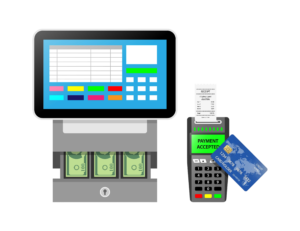Credit card processing in Tennessee shapes the way businesses operate and grow. Customers expect fast, secure, and convenient payment solutions. Businesses that deliver on these expectations gain a competitive edge. In Tennessee, unique regulations and a dynamic provider landscape require business owners to stay informed and proactive.+

To master credit card processing in Tennessee, businesses must understand more than just the basics. State-specific rules and the variety of local providers can impact transaction speed, fees, and security. By choosing the right partners and complying with Tennessee laws, businesses create smoother transactions for their customers and protect their bottom line. Explore how to navigate this landscape, select effective payment solutions, and optimize your operations for success in Tennessee’s evolving marketplace.
Understanding Credit Card Processing
Credit card processing enables businesses in Tennessee to accept payments from customers using credit or debit cards. This system forms the backbone of modern commerce. Retailers, restaurants, e-commerce shops, and service providers all rely on efficient payment methods to drive sales and build trust. By implementing reliable credit card processing, Tennessee businesses can offer flexible payment options, increase revenue, and appeal to a broader customer base.
A typical credit card transaction involves several key components. When a customer swipes, inserts, or taps their card, the point-of-sale (POS) terminal captures the payment information. The merchant services provider then routes this data to the acquiring bank, which forwards the authorization request to the cardholder’s issuing bank. The issuing bank verifies the transaction and either approves or declines it within seconds. Once approved, funds move from the customer’s account to the business’s account, minus any applicable processing fees.
Businesses must understand the flow of these transactions to make informed decisions about their payment systems. For example, an independent coffee shop in Nashville might use a mobile POS system for flexibility during busy events. Meanwhile, an online retailer based in Memphis could integrate a payment gateway into its website for secure e-commerce transactions. Both scenarios require knowledge of how credit card processing Tennessee works and how merchant services can support different business models.
By mastering these fundamentals, business owners position themselves for growth and efficiency. They gain insight into transaction timing, fee structures, and ways to resolve issues quickly. Understanding each component of credit card processing empowers Tennessee businesses to optimize cash flow, maintain compliance, and deliver a seamless experience to their customers.
Local Regulations Impacting Credit Card Processing
Tennessee enforces specific local regulations that affect how businesses process credit card payments. State laws require all businesses to comply with both federal standards, such as the Payment Card Industry Data Security Standard (PCI DSS), and Tennessee-specific consumer protection statutes. For example, Tennessee law mandates transparent disclosure of payment processing fees to customers. Businesses must display clear signage or provide written notice if they plan to add surcharges for credit card transactions. This protects consumers and keeps your business in line with state expectations.
Compliance in Tennessee also includes strict data privacy requirements. The Tennessee Identity Theft Deterrence Act imposes obligations on businesses to safeguard customer information collected during payment transactions. If a security breach occurs, state law requires prompt notification to affected customers and, in some cases, the Tennessee Attorney General. These requirements highlight the importance of choosing secure payment processing solutions and maintaining rigorous internal protocols.
Another key compliance factor involves state tax collection through credit card sales. Tennessee is a destination-based sales tax state, which means businesses must accurately calculate and remit sales taxes based on where goods or services are delivered. Payment processors must integrate seamlessly with tax calculation tools to ensure full compliance. Failure to follow these local regulations can result in penalties or legal action, making it essential for Tennessee businesses to stay updated on evolving rules.
By understanding and adhering to these local regulations, businesses in Tennessee protect themselves from costly fines and reputational damage. Establish strong compliance programs, train staff regularly on new legal updates, and consult with legal experts or payment processing professionals familiar with Tennessee law. These proactive steps will ensure that your payment systems operate smoothly and legally within the state.
Choosing the Right Payment Processor
Selecting the right partner for credit card processing in Tennessee shapes your business’s financial operations. Payment processors handle transactions, manage security, and provide support. When evaluating providers, consider transaction fees, contract terms, payment speed, customer service, and integration with your existing systems. For example, a retail store in Nashville may need a processor with robust point-of-sale (POS) options, while an online boutique in Chattanooga might prioritize seamless e-commerce integration.
Look for transparency in pricing and service. Some payment processors charge flat rates, while others use tiered or interchange-plus pricing models. Businesses should compare these structures carefully. Square offers predictable flat-rate fees and user-friendly hardware, which suits startups and mobile vendors. On the other hand, Heartland, based in Tennessee, delivers personalized service and local support, making it popular among regional businesses. National players like Stripe and PayPal offer advanced online tools and broad compatibility for e-commerce businesses statewide.
Consider industry specialization as well. Restaurants may benefit from processors that integrate with reservation or delivery platforms. Medical offices require HIPAA-compliant solutions. Tennessee-based processors often understand state-specific needs and can provide tailored recommendations. Evaluate each option’s ability to scale with your business growth and adapt to changing technology trends.
By comparing features, costs, and local expertise, businesses in Tennessee can select payment processors that align with their goals. Prioritize providers that support secure transactions, fast deposits, and easy reporting. This approach ensures your credit card processing system empowers your team and enhances customer trust at every transaction point.
Cost Considerations for Businesses
Businesses in Tennessee must account for several types of fees when setting up credit card processing. Transaction fees form the core of these expenses. Providers typically charge a percentage of each sale, often combined with a flat fee per transaction. For example, a local café in Nashville may pay 2.6% plus $0.10 on every credit card purchase. Other common costs include monthly service fees, equipment rental charges, and occasional incidental fees such as chargeback or PCI compliance fees.
To keep costs under control, businesses should analyze their sales volume and transaction patterns before choosing a processor. High-volume retailers can often negotiate lower transaction fees or seek processors that offer interchange-plus pricing, which provides more transparency compared to flat-rate models. For instance, a Memphis-based retail shop processing thousands of transactions monthly can benefit from negotiating custom rates rather than accepting standard plans.
Bundling payment services with other business solutions may also reduce overall expenses. Some Tennessee businesses have found savings by integrating their payment processing with existing POS systems or e-commerce platforms. This approach can eliminate redundant technology costs and streamline accounting tasks.
Businesses should regularly review their merchant statements to identify unnecessary charges and hidden fees. Requesting annual reviews from providers can help uncover better pricing tiers or new promotional offers. By taking an active role in monitoring and negotiating payment processing costs, Tennessee businesses can maximize their profits while maintaining reliable service for their customers.
Enhancing Customer Experience through Payment Solutions
Delivering a seamless payment experience remains crucial for customer satisfaction. In Tennessee, customers expect fast, easy, and secure transactions whether they shop in-store or online. Businesses that prioritize efficient credit card processing in Tennessee can reduce wait times, decrease errors, and build trust. For example, restaurants in Nashville are adopting tableside payment solutions to let diners pay right at their table, speeding up service and minimizing friction.

Innovative payment technologies are gaining traction across the state. Many retailers now offer contactless payments, digital wallets, and mobile point-of-sale systems. These options provide flexibility to customers who prefer using smartphones or contactless cards over traditional swipe methods. E-commerce businesses in Tennessee also benefit by integrating advanced checkout systems that support one-click payments and recurring billing for subscription services, further enhancing the customer experience.
Trends show that local businesses are embracing omni-channel payment solutions. For instance, Knoxville boutiques combine in-store terminals with online invoicing tools, allowing customers to start a purchase in person and complete it online later. This approach not only streamlines payment processing but also strengthens customer loyalty by offering convenience and continuity across sales channels.
Implementing these innovative payment solutions positions Tennessee businesses to meet rising consumer expectations. By regularly evaluating and upgrading their credit card processing systems, business owners can ensure secure, hassle-free transactions. This proactive approach leads to repeat business, positive reviews, and a stronger reputation within the local market.
Security and Fraud Prevention Measures
Protecting customer payment information is essential for business growth in Tennessee. Businesses must implement robust security protocols to prevent data breaches and unauthorized access. Use point-to-point encryption (P2PE) and tokenization to secure cardholder data during transactions. Require employees to follow strict procedures, such as never writing down card numbers and regularly updating passwords on payment terminals. Install EMV-compliant terminals to reduce the risk of counterfeit card fraud and ensure that all software and hardware are updated with the latest security patches.
Tennessee businesses must also comply with the Payment Card Industry Data Security Standard (PCI DSS). This standard sets guidelines for handling, processing, and storing credit card data. Non-compliance can result in hefty fines and reputational damage. Work with your payment processor to complete PCI compliance requirements annually and conduct regular vulnerability scans of your systems. Some local processors offer resources or training to help you meet these standards efficiently.
Understanding liability and managing chargebacks is another critical aspect of payment security. In Tennessee, as elsewhere, liability for fraudulent transactions often shifts to the party using outdated technology or failing to follow security protocols. For example, if a business does not use chip-enabled card readers, it may be liable for losses from counterfeit card use. Establish clear policies for documenting transactions, obtaining customer signatures when necessary, and responding quickly to chargeback notifications. Track common causes of chargebacks, such as customer disputes or processing errors, and address underlying issues to minimize their impact.
By prioritizing security and fraud prevention, Tennessee businesses can build trust with customers and protect their revenue streams. Strong security measures not only reduce financial risk but also create a safe environment that supports long-term business growth. Invest in ongoing employee training, partner with reliable payment processors, and review your security practices regularly to stay ahead of evolving threats in the payment landscape.
Tips for Optimizing Your Payment System
Streamline credit card processing operations by regularly reviewing your payment workflows. Map out each step from the moment a customer initiates payment to when funds are deposited in your account. Identify bottlenecks, such as slow transaction approvals or manual reconciliation processes. For example, many Tennessee retailers now integrate their point-of-sale systems with accounting software. This integration reduces human error and accelerates back-office tasks.
Adopt the latest payment technologies to keep pace with evolving consumer expectations. Implement mobile payment options and contactless terminals to provide a faster checkout experience. E-commerce businesses in Tennessee can benefit from offering digital wallets, such as Apple Pay or Google Pay, which speed up online checkouts and increase conversion rates. These technologies also help reduce abandoned carts and boost customer satisfaction.
Leverage automation tools to improve efficiency in both brick-and-mortar and e-commerce payments. Set up automatic batching of transactions at the end of each business day to simplify settlement and reporting. Use fraud detection tools that flag unusual transactions in real time, freeing up staff to focus on core business tasks. These tools minimize risk and ensure compliance with industry regulations.
Train staff on payment system best practices and update protocols as new technologies emerge. Encourage regular feedback from employees who interact with the system daily. Their insights can uncover opportunities for further optimization. By continuously refining your credit card processing in Tennessee, your business delivers a seamless payment experience while maintaining operational efficiency and cost-effectiveness.
Case Studies: Successful Credit Card Processing in Tennessee
Many Tennessee businesses have transformed their operations by mastering credit card processing. A Nashville-based boutique, for example, upgraded its payment system to accept contactless payments and integrated mobile wallets. This move not only increased transaction speed but also improved customer satisfaction. By adopting EMV-compliant terminals and adhering to strict security standards, the boutique reduced chargebacks and built customer trust. The owner credits the success to selecting a processor with robust local support and transparent pricing.
A Knoxville restaurant chain faced high processing costs and frequent disputes before optimizing its payment workflow. Management switched to a processor offering real-time analytics and automated chargeback alerts. These tools allowed staff to resolve issues quickly and monitor sales trends. The restaurant also trained employees on PCI DSS requirements, which strengthened data protection and minimized the risk of breaches. As a result, the business saw a significant drop in fraud incidents and improved cash flow.
An e-commerce startup in Memphis leveraged advanced payment technologies to gain a competitive edge. By integrating an omnichannel gateway, the company offered seamless transactions across online and in-person sales. They worked closely with their provider to customize fraud detection rules and stay ahead of evolving threats. Compliance with Tennessee’s regulatory environment and national security standards ensured smooth audits and customer confidence.
These examples show that success in credit card processing comes from proactive decision-making and investment in secure, efficient systems. Businesses that prioritize compliance, leverage technology, and maintain strong partnerships with processors set themselves up for sustained growth. Following these models, Tennessee companies can strengthen their payment operations and deliver outstanding service.
Take Charge of Your Credit Card Processing in Tennessee
Businesses in Tennessee face unique challenges and opportunities in credit card processing. Understanding state regulations, selecting the right payment processor, managing costs, and implementing secure systems all play critical roles. Effective payment solutions not only ensure compliance but also enhance customer satisfaction and operational efficiency. Local case studies show that businesses that invest in robust credit card processing Tennessee solutions see measurable improvements in profitability and customer loyalty.

Act now to review your current credit card processing setup. Evaluate your provider, update your security measures, and embrace new technologies to streamline operations. By mastering credit card processing in Tennessee, your business can reduce risks, cut unnecessary expenses, and deliver a seamless payment experience to every customer. Take these steps today to strengthen your financial operations and position your business for long-term growth.
Working with United Banc Card of TN
If you find yourself wanting to conquer your restaurant, retail shop, look no further than United Banc Card of TN. With their innovative solutions and trusted POS System services, they will guide you towards financial success. Whether you are a small business owner or an individual looking to manage your finances better, United Banc Card of TN has the tools and expertise to help. Call us today @615-476-0255



